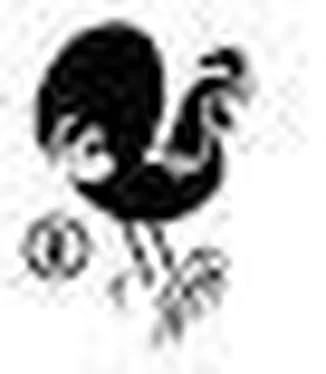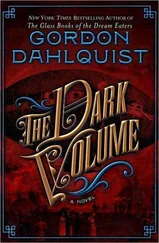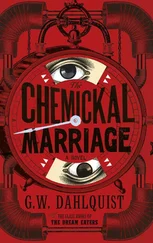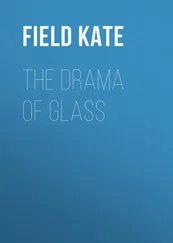A conductor stood with a lantern, one foot up on the stairs into the last car, ready to swing himself aboard. It was 6:22. She smiled at him as sweetly as her heaving breath would allow, and pushed past into the car. She had only just stopped at the top of the steps to gather her wits when the train pulled forward, nearly knocking her off her feet. She flung her arms out against the wall to keep her balance and heard a chuckle behind her. The conductor stood with a smile at the base of the steps in the open doorway, the platform moving past behind him. Miss Temple was not used to being laughed at in any circumstance, but between her mission, her disguise, and her lack of breath, she could find no immediate retort and instead of gaping like a fish merely turned down the corridor to find a compartment. The first was empty and so she opened the glass door and sat in the middle seat facing the front of the train. To her right was a large window. As she restored her composure, the last rushing view of Stropping Station—the platform, the trains lined up, the vaulted brick cavern—vanished, swallowed by the blackness of a tunnel.
The compartment was all dark wood, with a rather luxurious red velvet upholstery for the bank of three seats on either side. A small milk-white globe gave off a meager gleam, pallid and dim, but enough to throw her reflection against the dark window. Her first instinct had been to pull off the cloak and breathe easily, but though Miss Temple was hot, scattered, and with no sense of where she was exactly going, she knew enough to sit still until she was thinking clearly. Orange Canal was some distance outside the city, nearly to the coast, with who knew how many other stops in between, any one of which might be Roger’s actual destination. She had no idea who else might be on the train, and if they might know her, or might know Roger, or might in fact be the reason for the journey itself. What if there were no destination at all, merely some rail-bound assignation? In any case, it was clear that she had to find Roger’s location on the train or she would never know if he disembarked or if he met someone. As soon as the conductor came to take her ticket, she would begin to search.
He did not come. It had already been some minutes, and he had only been a few yards away. She didn’t remember seeing him go past—perhaps when she entered?—and began to get annoyed, his malingering on top of the chuckle making her loathe the man. She stepped into the corridor. He was not there. She narrowed her eyes and began to walk forward, carefully, for the last thing she wanted—even with the cloak—was to stumble into Roger unawares. She crept to the next compartment, craned her head around so she could peer into it. No one. There were eight compartments in the car, and they were all empty.
The train rattled along, still in darkness. Miss Temple stood at the door to the next car and peered through the glass. It looked exactly like the car she was in. She opened the door and stepped through—another eight compartments without a single occupant. She entered the next car, and found the exact same situation. The rear three cars of this train were completely unoccupied. This might explain the absence of the conductor—though he still must have known her to be in the rear car and if he had been polite could have taken her ticket. Perhaps he merely expected her to do what she was doing, moving ahead to where she should have been in the first place, if she hadn’t been so late to reach the train. Perhaps there was something she didn’t know about the rear cars, or the etiquette on this particular trip—would that explain the chuckle?—or about the other passengers themselves. Perhaps they were in a group? Perhaps it was less a journey and more of an excursion? Now she despised the conductor for his presumption as well as his rudeness, and she moved forward in the train to find him. This car as well was empty—four cars!—and Miss Temple paused at the doorway into the fifth, trying to recall just how many cars there were to begin with (she had no idea) or how many might be normal (she had no idea) or what exactly she could say to the conductor, upon finding him, that would not reveal her complete ignorance (she had no immediate idea). As she stood thinking, the train stopped.
She rushed into the nearest compartment and threw open the window. The platform was empty—no one boarding, and no one leaving the train. The station itself—the sign said Crampton Place—was closed and dark. The whistle blew and the train—throwing Miss Temple back into the seats—lurched into life. A chill wind poured through the open window as they gathered speed and she pulled the window closed. She had never heard of Crampton Place, and was happy enough not to be going there now—it struck her as desolate as a Siberian steppe. She wished she had a map of this particular line, a list of stops. Perhaps this was something she might get from the conductor, or at least a list she could write down in her book. Thinking of the book, she took it out and, licking the tip of the pencil, wrote “Crampton Place” in her deliberate, looping script. With nothing else to add, she put the book away and returned to the corridor and then, with a sigh of resolve, stepped into the fifth car.
She knew it was different from the perfume. Where the other corridors were imbued with a vague industrial mixture of smoke and grease and lye and dirty mop-water, the corridor of the fifth car smelled—startling because she knew them from her own home—of frangipani flowers. With a surge of excitement, Miss Temple crept to the nearest compartment and slowly leaned forward to peer into it. The far seats were all occupied: two men in black topcoats and between them a woman in a yellow dress, laughing. The men smoked cigars, and both had trimmed and pointed beards, with hearty red faces, as if they were two examples of the same species of thick, vigorous dog. The woman wore a half-mask made of peacock feathers that spread out over the top of her head, leaving only her eyes to pierce through like gleaming stones. Her lips were painted red, and opened wide when she laughed. All three were gazing at someone in the opposite row of seats, and had not noticed Miss Temple. She retreated from view, and then, feeling childish but knowing nothing else for it, dropped to her hands and knees and crawled past, keeping her body below the level of the glass in the door. On the other side, she carefully rose and peered back at the opposite row of seats and froze. She was looking directly at Roger Bascombe.
He was not looking at her. He wore a black cloak, closed about his throat, and smoked a thin, wrapped cheroot, his oak-colored hair flattened back over his skull with pomade. His right hand was in a black leather glove, his left, holding the cheroot, was bare. At a second glance Miss Temple saw that the right gloved hand was holding the left glove. She also saw that Roger was not laughing, that his face was deliberately blank, an expression she had seen him adopt in the presence of the Minister or Deputy Minister, or his mother, or his uncle Tarr—that is, those to whom he owed deference. Sitting against the window, the seat between them unoccupied, was another woman, in a red dress that flashed like fire from beneath a dark fur-collared cloak. Miss Temple saw the woman’s pale ankles and her delicate throat, like white coals beneath the flaming dress, flickering in and out of view as she shifted in her seat. Her darkly red mouth wore an openly provocative wry smile and she puffed at a cigarette through a long black lacquered holder. She also wore a mask, of red leather, dotted with glittering studs where the eyebrows would be, and then—Miss Temple noted with some discomfort—forming a gleaming tear, just ready to drop from the outer corner of each eye. She had obviously said whatever the others were laughing at. The woman exhaled, a deliberate stream of smoke sent to the other row of seats. As if this gesture were the conclusion of her witticism, the others laughed again, even as they waved the smoke from their faces.
Читать дальше






![Theresa Cheung - The Dream Dictionary from A to Z [Revised edition] - The Ultimate A–Z to Interpret the Secrets of Your Dreams](/books/692092/theresa-cheung-the-dream-dictionary-from-a-to-z-r-thumb.webp)





